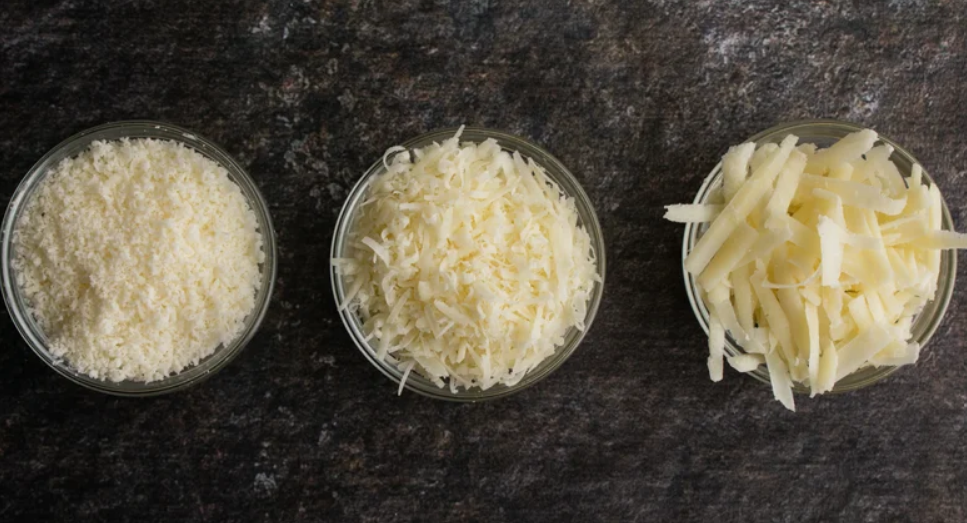Cheese is delicious in each of its shapes, but when it comes to adding cheeses such as Cheddar, Gruyere, or Parmesan to such recipes as slo-cooker Mick & cheeses or caccio a Pepe, its shape matters. Bags of shredded and grated cheese are common in the grocery store, or you can even work in your own home. As soon as, as you choose shredded and grated cheese for your hosting, there is a difference in shape and consistency that you should consider.
The most obvious difference between the two is the shape. Shredded cheese comes in thick slices or strips that can be thick or thin on the eve of the preparation process, and in the supermarket you will see more varieties of great Prussian cheese. In comparison, grated cheese is very tender and powdery; think of parmesan that is usually available in a grated form in a bottle. With Shred varieties, you feel the delicious taste and cheesy style of the aroma of more cheese while the grated cheese is perfectly added to the inserted dish so that each sauce has flavor.
When you buy any variety from the market, remember that they will be hidden from the anti-caking agent so that they do not freeze together, and they may also contain preservatives to keep them fresh. This means that pre-grated or shredded cheese has a refreshing difference in layers and flavor, and takes longer to melt when cooked.
When to use shredded cheese and when to reach for grated instead

Shredded and grated cheese both work with a lot of receipts, but there are some occasions when one variety is better than the other. Use shredded cheese when you want thick layers of something pushed, or on cannons or to add to the dish. Some examples of using shredded cheese are for sandwiches, e.g. the ultimate grilled object of the testing table or the quesadillas of a sheet pan such as our sheet pan quesadillas. It is also good for thick layers on pizza, casserole, and baked pasta, such as croissant breakfast casserole or classic baked ziti.
Grate cheese because it is very spicy, it is better to use it as a garnish on dishes such as pasta or when you want more aroma of something that easily decomposes in one dish. Perhaps the most common use is grated cheese pasta on deshes injury like our pasta e fajoli with pancetta and white beans or Instant Pot Spaghetti for easy and Saturday evening meals Grate cheese also blends well on salads such as cheesy eggs, sizzlers, or can also be mixed into soups.

